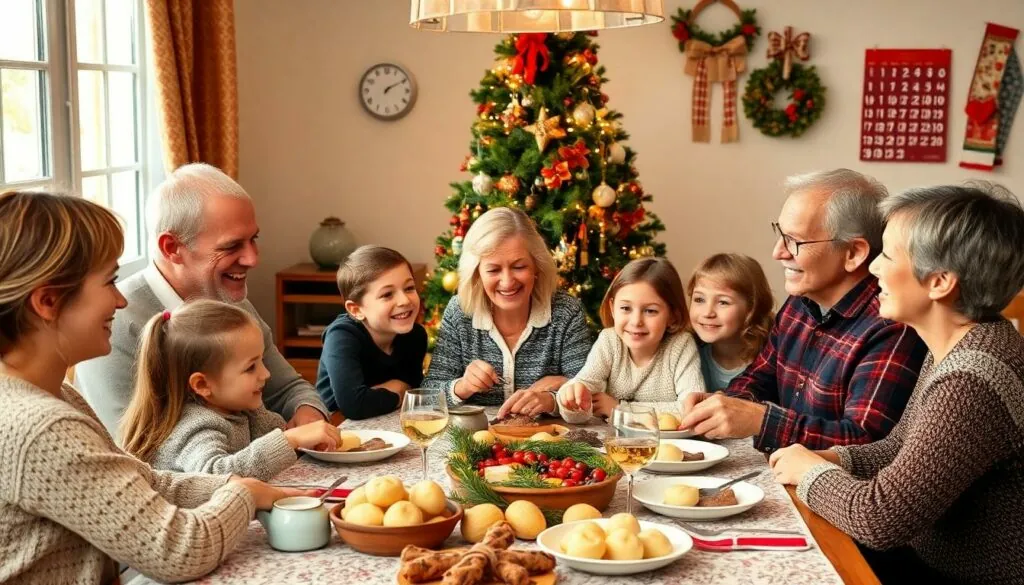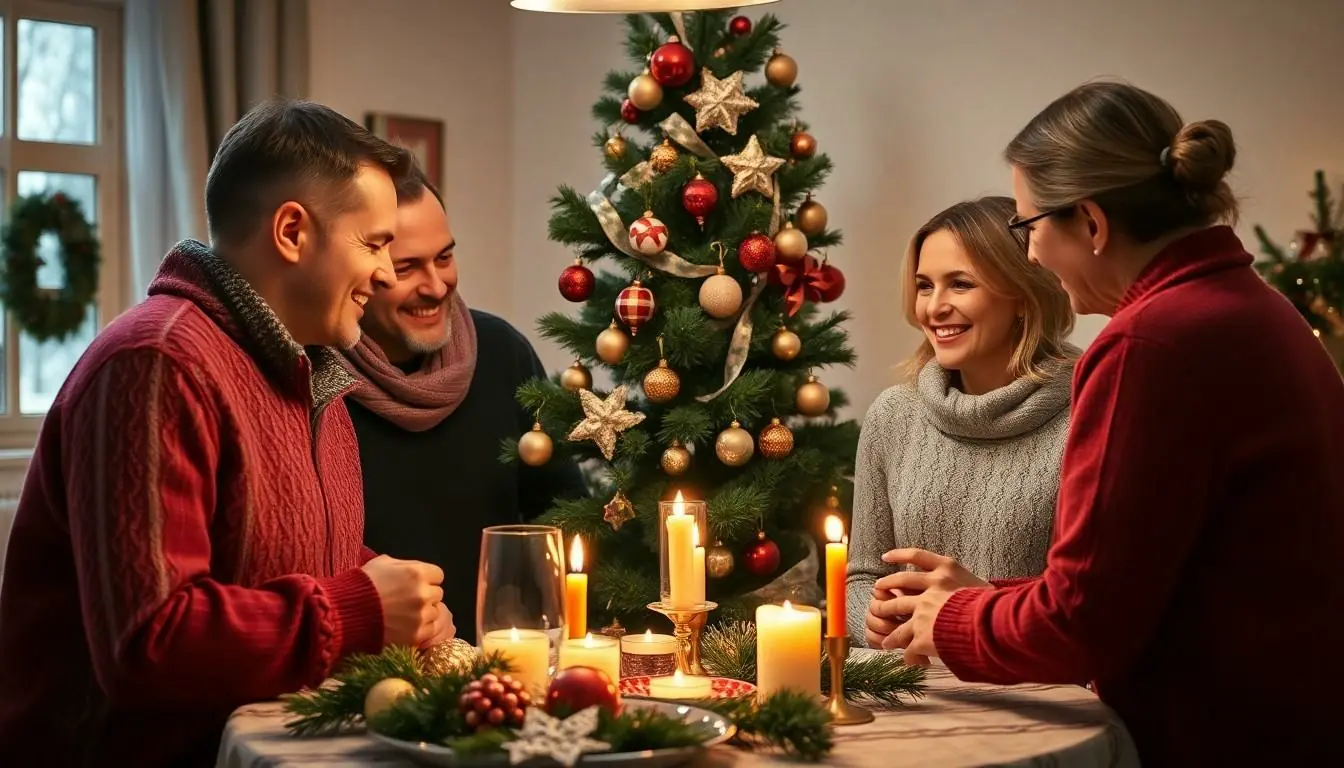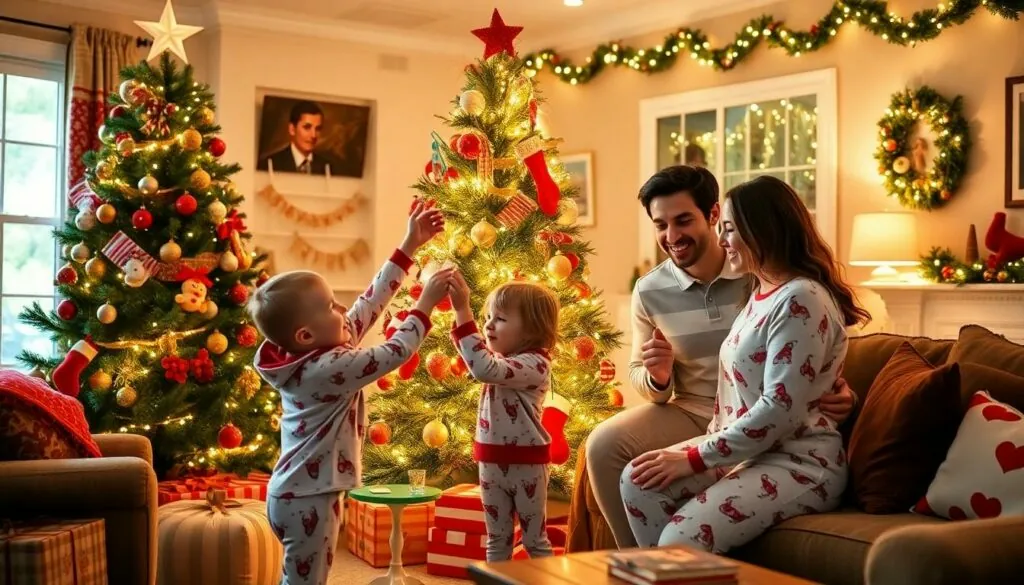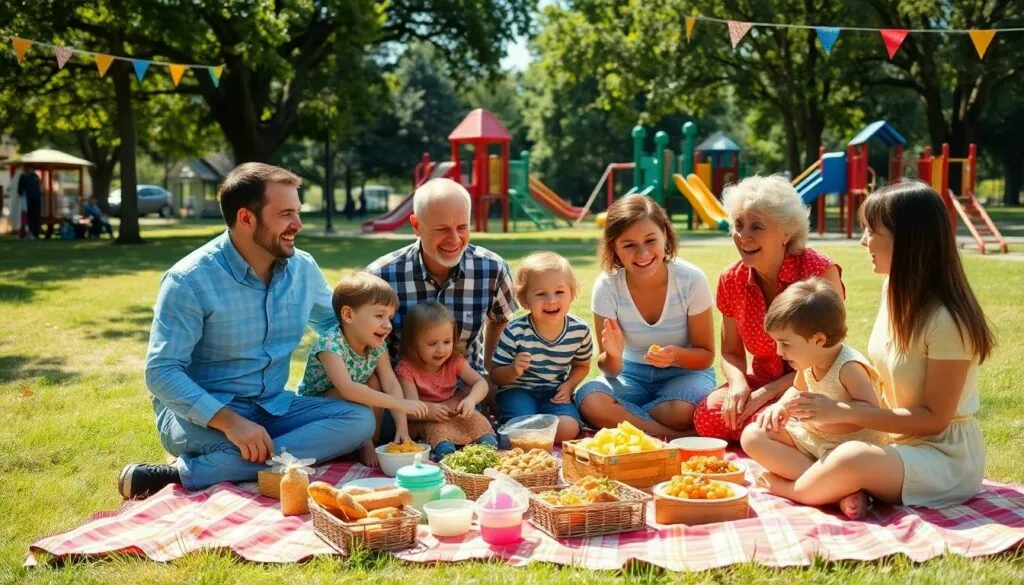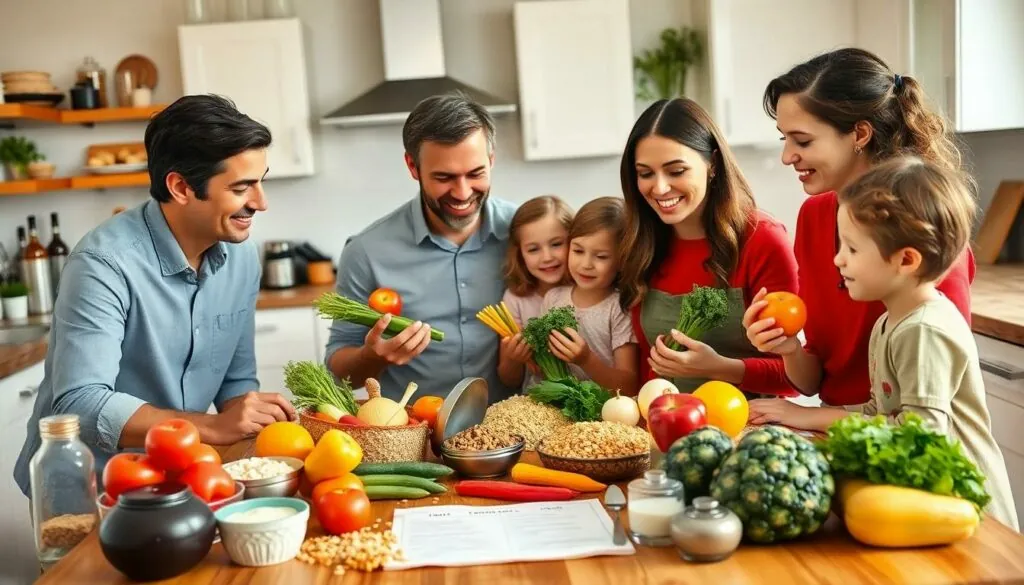Table of Contents
ToggleGerman families take their traditions seriously – and we mean seriously. From celebrating Christmas with real candles on trees to hiding Easter eggs in the most impossible places these customs have been passed down through generations with the precision of a German-engineered BMW.
At the heart of German family life lies a rich tapestry of traditions that blend ancient customs with modern celebrations. Whether it’s gathering for a cozy Sunday Kaffee und Kuchen (coffee and cake) or marking life’s milestones with unique rituals Germans know how to keep their cultural heritage alive and kicking. These cherished practices don’t just unite families – they create lasting memories and strengthen bonds that span generations.
Traditional German Family Values and Structure
German families maintain strong bonds through established hierarchies respect for authority. The family unit serves as the foundation of German society focusing on stability discipline mutual support.
The Role of Extended Family
Extended family members play integral roles in German family life maintaining close connections through regular gatherings rituals. Grandparents aunts uncles often participate in weekly family meals Sunday coffee gatherings religious celebrations. Extended families gather for milestone events like baptisms confirmations weddings sharing responsibilities for organizing festivities preparing traditional dishes maintaining family traditions. German families emphasize maintaining relationships across generations with extended family members actively participating in childcare educational support cultural transmission.
Multi-Generational Living
German households frequently incorporate multiple generations under one roof particularly in rural areas smaller towns. Grandparents commonly live in separate units within the same house or nearby providing childcare support maintaining family properties sharing daily responsibilities. This living arrangement enables practical benefits like shared resources reduced living costs enhanced family support systems. Multi-generational homes facilitate the transfer of cultural knowledge traditional skills family recipes customs from older to younger generations creating a continuous chain of heritage preservation.
| Multi-Generational Living Statistics | Percentage |
|---|---|
| German households with 3+ generations | 15% |
| Grandparents providing regular care | 32% |
| Families sharing property/resources | 25% |
| Rural multi-generational homes | 35% |
German Holiday Traditions and Celebrations
German families observe distinct holiday customs throughout the year with meticulous attention to detail. These celebrations unite families through time-honored rituals passed down across generations.
Christmas Customs and Rituals
German Christmas celebrations begin on December 1st with the opening of Advent calendars. Families gather on December 24th for Heiligabend (Christmas Eve) to share a traditional feast of goose, red cabbage, and potato dumplings. Children anticipate visits from St. Nicholas on December 6th, placing polished boots outside their doors for treats. The Christkind (Christ Child) delivers presents on Christmas Eve, marked by the ringing of a bell. German homes feature real Christmas trees adorned with glass ornaments, wooden decorations, and authentic beeswax candles. Many families attend midnight mass followed by singing traditional carols like “Stille Nacht” (Silent Night).
Easter Family Gatherings
German Easter celebrations combine religious observances with springtime festivities. Parents create elaborate Easter egg hunts in gardens or parks using decorated eggs called Ostereier. Traditional Easter breakfast includes colored hard-boiled eggs, fresh breads, cold cuts, and special pastries. Families light Easter fires on Holy Saturday to symbolize the end of winter. Children receive decorated Easter baskets filled with chocolate eggs, bunnies, and small gifts. Regional customs include the Ostereierbaum (Easter egg tree) where families hang painted eggs on outdoor tree branches.
Birthday and Name Day Celebrations
Germans celebrate both birthdays (Geburtstag) and name days (Namenstag) tied to Catholic saints’ feast days. Birthday traditions include the birthday child receiving a flower wreath crown (Geburtstagskranz) featuring age-appropriate candles. Friends sing “Zum Geburtstag viel Glück” while the celebrant blows out candles on a homemade torte. Name day celebrations feature special meals with godparents presenting small gifts. Adult birthdays ending in zero prompt large parties called runde Geburtstage with extended family gatherings. Birthday children avoid cleaning or working on their special day.
German Food and Family Meals
German families unite around traditional meals that serve as cornerstones of cultural preservation. These dining customs blend culinary heritage with meaningful social connections across generations.
Sunday Family Dinners
Sunday dinners in German households follow a structured schedule, typically starting at 12:00 PM sharp. The main course features hearty dishes like Sauerbraten with potato dumplings or roasted pork with sauerkraut. Children participate in table setting rituals, placing formal dinnerware according to traditional etiquette. Extended family members gather weekly, creating a consistent rhythm of connection through shared meals. These gatherings last 2-3 hours, incorporating multiple courses served in a specific order: soup, main dish, dessert. Mobile phones remain off limits during meals, maintaining focus on face-to-face interaction.
Traditional Recipe Sharing
German families preserve culinary heritage through handwritten recipe books passed down through generations. Grandmothers teach specific techniques to younger family members during cooking sessions, focusing on regional specialties like Black Forest Cake or homemade spätzle. Family recipes include precise measurements recorded in grams rather than cups, ensuring consistency across generations. Recipe collections often contain margin notes detailing family stories or special occasions where dishes were served. Digital archives now complement physical recipe books, with 65% of German families maintaining both formats to safeguard their culinary legacy. These recipes connect modern families to their ancestors through authentic taste experiences.
Education and Child-Rearing Practices
German families place education at the center of child development, integrating structured learning with traditional values. Parents actively participate in their children’s educational journey while maintaining strict discipline standards.
Academic Achievement Values
German parents emphasize academic excellence through a structured approach to education starting at age 3. Children attend Kindergarten for three years, focusing on social skills rather than formal academics. Elementary school begins at age 6, with students entering a three-tiered secondary education system by age 10. Parents encourage independent learning, dedicating 2-3 hours daily to homework supervision. Statistics indicate that 83% of German parents attend monthly parent-teacher conferences, while 76% participate in school activities. The education system incorporates practical skills alongside academic subjects, with 45% of students pursuing vocational training through the dual education system combining classroom learning with apprenticeships.
Family Discipline Approaches
German parents implement consistent discipline methods focusing on natural consequences rather than punishment. Children receive clear expectations for behavior with 85% of families establishing regular routines. Parents set firm boundaries while maintaining emotional warmth, creating a balanced environment for child development. Time-outs last one minute per year of age, occurring in designated quiet spaces. German families prioritize respect for authority, with 92% of children expected to address adults formally using “Sie.” Positive reinforcement includes privilege-based rewards such as extended playtime or special activities. Physical punishment remains illegal since 2000, encouraging parents to utilize communication-based discipline strategies.
Modern Changes in German Family Life
German families navigate significant transformations in their traditional customs while adapting to contemporary lifestyles. Technology integration social media influence alter how families connect maintain relationships.
Blending Old and New Customs
Modern German families integrate digital solutions into traditional practices. Video calls connect distant relatives for virtual Sunday coffee gatherings creating cross-continental celebrations. Social media platforms document family milestones with 78% of German families sharing holiday photos online. WhatsApp groups coordinate family events replace traditional phone chains. Digital advent calendars complement physical ones with 45% of families using both formats. Online recipe databases store cherished family recipes alongside handwritten cookbooks ensuring preservation accessibility. Smart home devices enhance traditional festivities with programmed lighting schedules for Christmas decorations.
Preserving Heritage in Contemporary Times
German families implement innovative approaches to maintain cultural connections across generations. Digital archives store family histories through dedicated apps platforms with 65% of families maintaining electronic records. Language learning apps help children retain German language skills when living abroad. Virtual reality technologies recreate traditional celebrations for family members unable to attend in person. Cultural education programs incorporate multimedia elements teaching younger generations about heritage customs. Modern families organize heritage weekends focusing on traditional crafts cooking practices music. Instagram accounts dedicated to German family traditions reach broader audiences with 3 million active followers engaging in cultural exchange. Technology enables real-time translation during family gatherings bridging communication gaps between generations living internationally.
Conclusion
German family traditions remain a vibrant cornerstone of the nation’s cultural identity. From cherished holiday celebrations to weekly family gatherings these customs continue to shape and strengthen family bonds across generations. While modern life brings inevitable changes German families have successfully adapted their traditions to contemporary needs without losing their essential meaning and value.
The blend of time-honored practices with modern adaptations ensures that these meaningful traditions will endure. As German families navigate the future they’ll continue to pass down their rich cultural heritage while embracing new ways to maintain their strong family connections. These enduring traditions serve as a testament to the resilience and adaptability of German family life.

